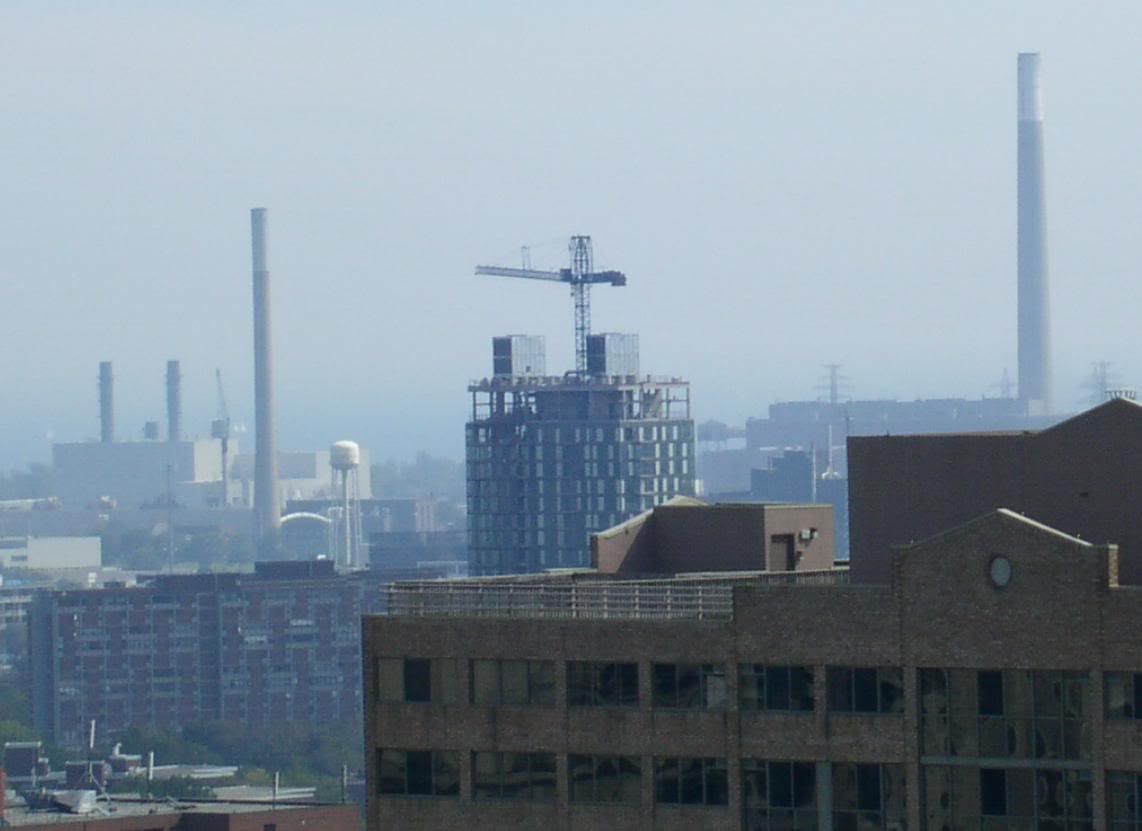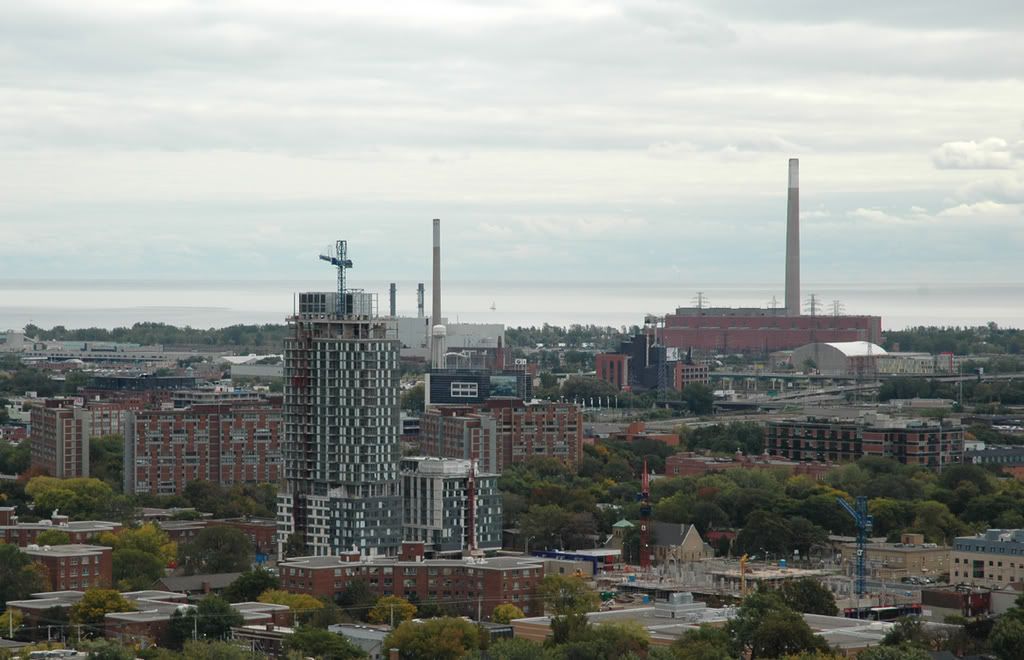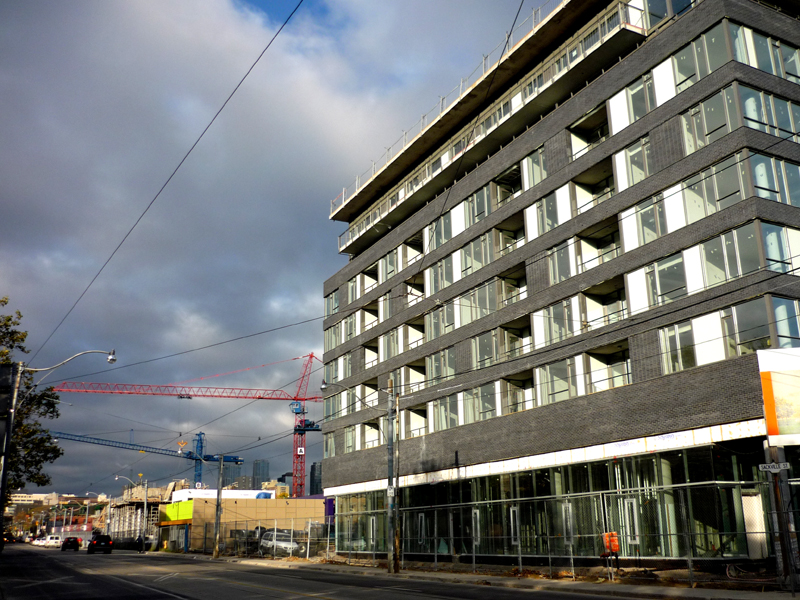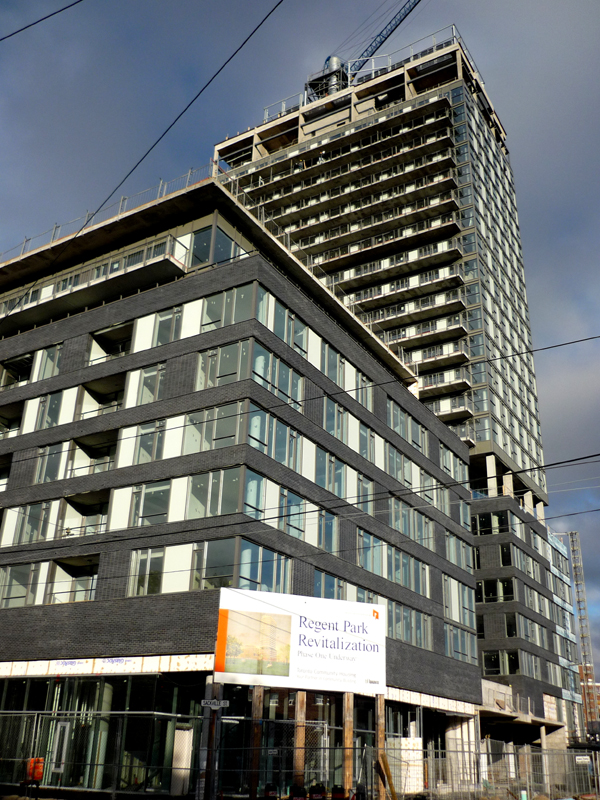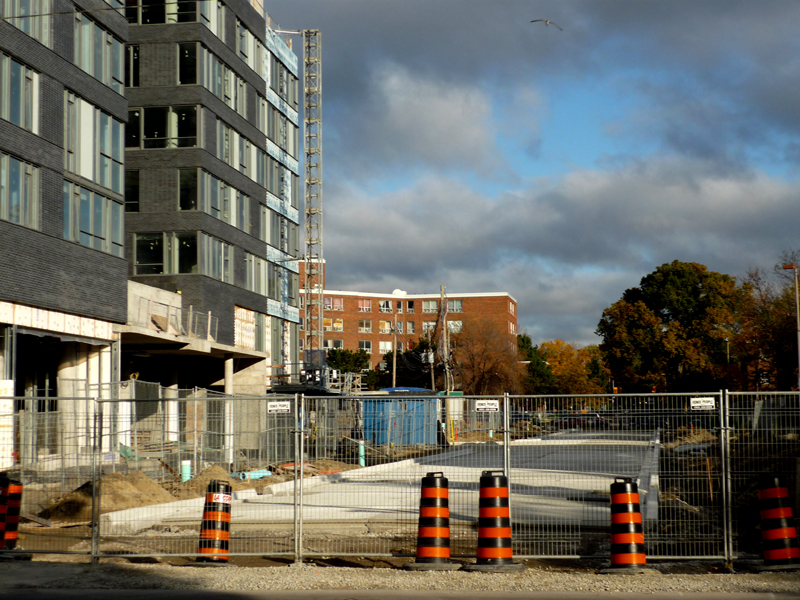Condo cash was going to save Regent Park. Kiss that idea (and others) goodbye
JOHN BARBER
jbarber@globeandmail.com
October 4, 2008
Toronto developers who weren't too busy this week searching for new bankers to finance their pre-sold but un-built housing projects passed time gossiping about which of them would fail first. The targets of anxiety varied, but the consensus was clear: No matter how orderly the eventual cleanup may or may not be, the party's over.
For some, the job is to replace financing promised by defunct Lehmann Brothers of New York, which until recently was active in the local condo market. Others are being forced to dig deeper into their own pockets to shore up the waning confidence of nervous bankers.
Pre-sales to willing buyers count for little in the new environment: Some industry veterans are now being asked to produce actual building permits before their banks will let them begin construction.
"These guys close their doors fast," said one. "It's common knowledge that even the most robust developers are having trouble getting financing. It's tough, tough, tough."
Whatever happens next week or next year, the late boom will be remembered as having transformed the central city, with tens of thousands of new apartments standing as evidence of dramatically renewed vitality. But outside the magic core, in older suburbs desperately seeking new investment, nothing will have changed.
In that respect, the most obvious victim of the credit crunch is the city itself, which has invested so much political capital in the promise of ever-increasing real-estate values. Sagging values clearly imperil such signature policies as waterfront renewal, the land-transfer tax, social-housing rehabilitation and even the vaunted Mayor's Tower Renewal program.
Barring a miracle, the new tower now rising at the corner of Dundas and Parliament will be the last evidence of the much-anticipated revitalization of Regent Park, Canada's largest public-housing project - and the city's most ambitious attempt to use condo sales to finance social policy.
There was a time it almost seemed possible. Senior governments had abandoned the housing business and land values were soaring. The solution was to sell off part of the site for market housing in order to rebuild public housing on the rest.
But even in the best of times, the city was unable to find a developer to take the risk. Undeterred, it self-financed construction of the first "market" building. With even the most prominent developers now struggling to finance construction on prime midtown sites, there seems little hope for Regent Park.
And Lawrence Heights, that other battered public-housing neighbourhood in a much more remote location, currently awash in talk of similar, bootstrap-style revitalization? Forget it. Without real money from government, nothing will happen.
Waterfront redevelopment is much less challenging in theory, but one look at the harbourfront shows what happens when policy-driven authorities attempt to surf against the waves, developing housing in a "negative equity" market. Their failure takes permanent shape on the skyline.
With its ambitious plans for the East Bayfront on the other side of Yonge Street, Waterfront Toronto has set the same trap for itself, promising all kinds of goodies that the real estate is supposed to pay for. It was a good plan yesterday.
Although still inchoate, the Mayor's Tower Renewal could emerge as the ultimate victim of the crunch.
Most of the magic money needed to finance this revitalization scheme is expected to come from energy savings. Presuming the same economics applies tomorrow, many old high-rises will get new winter coats over the next few years. But the big moves intended to revive distressed neighbourhoods as a whole depend on real-estate leverage that no longer exists.
While it lasted, the real-estate boom presented an interesting alternative to government-financed social policy. Significant revitalization occurred, but only in locations dictated by the market.
The rest of the city waited patiently for a turn, it now seems clear, that will never come.
